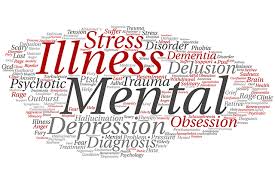|
I like to dip into my humans’ research interests, so recently I’ve been reading Johann Hari’s new book, Lost Connections: Understanding the Real Causes of Depression. Hari mentions lots of points already noted by other people, arguing that depression is caused by social factors (such as poverty or forced migration) rather than biological factors (such as genes or differences in people’s brains). For example, following Richard Bentall and many others, he notes studies that suggest that for a lot of people anti-depressants are only as effective as placebos, and so probably function as placebos, and that the ‘brain chemistry imbalance’ theory of depression has not in fact been proved, and yet is still perpetuated by pharmaceutical companies, doctors and others. Hari’s position has been put forward by quite a few people, usually towards the left of the UK and US political spectrum. And being on the left of this spectrum you might think I’d be inclined to agree with Hari. He and others are reacting to a significant problem with mental health treatments in our society: that the ‘bio-psycho-social’ model of mental illness has become, in some medical and other contexts, the ‘bio-bio-bio’ model. As a result of this, antidepressants are seen as ‘the’ solution, to the exclusion of psychological (e.g. talking) therapies, and to the detriment of addressing the social problems (e.g. poverty, breakdown of communities, casualisation of work contracts, sexist treatment of women, homophobic treatment of gay people, and so on) that play a large part in mental illnesses such as depression. I agree wholeheartedly we need to address these social problems, and that they play a significant role in depression and other forms of mental illness. So, why am I not a fan of Hari’s? One reason is that he continues the polarisation of ‘biological’ and ‘social’ factors already present in the ‘bio-bio-bio’ model. Either mental illness is purely biological, or else it is purely social. But people aren’t like that: they’re both biological and social. One of my humans loves cheese – that’s probably a biologically-based love of salty things, and being brought up and living in a culture where cheese is regarded as delicious thing. Another reason I’m not a fan is that people arguing for this position tend to over-state the evidence. There is evidence for a significant role of placebo in anti-depressants. But there is also evidence that the role of placebo is less than originally thought by the researchers (so there’s now evidence pointing in both directions - though it's agreed that at least some of the effects of anti-depressants are placebo) – and evidence that anti-depressants are genuinely effective for people with severe rather than only mild or moderate depression. So a ‘social-social-social’ model such as Hari’s is as dangerous as the ‘bio-bio-bio’ model it’s reacting against. While the ‘bio-bio-bio’ model deflects our attention away from social problems, the ‘social-social-social’ model overstates some evidence, and discourages people from taking tablets that, while ineffective for some, may be effective, life-transforming and even life-saving for others. There are other problems with the ‘social-social-social’ model too. One is that it assumes that a treatment for something must correspond to the cause of the illness or problem – and so, for example, anti-depressant tablets won’t work unless the cause of depression is biological but not social. But that’s something that needs arguing for, and is not obviously the case. Perhaps someone's bad experience in their workplace causes them to have low serotonin levels, which drugs then correct. Another is that the social-social-social model suggests that humans are social (they are!), but at the expense of their biological natures. Humans are different to dogs, say, but both are animals – they are both social and biological creatures. Denying this fact (something humans try to do quite a lot) puts people under significant stress and pressure to somehow transcend or deny both biological and social aspects of their nature. My humans have written something on this for Labour Briefing. You can read it here. On another note, I’m providing a link to a page to donate to Whitby Dog Rescue, who looked after me and found a home for me when I was very little and again when I was a year old. They have a lot of dogs they’re looking to rehome – including another Lola (it is the best name, after all). They’re run on a shoe-string, so if you’re able to give them anything to help them feed the dogs while they’re there, whatever you can give would be much appreciated and made good use of.
0 Comments
Leave a Reply. |
AuthorMental walkies with Lola, Archives
May 2019
Categories
All
|

 RSS Feed
RSS Feed
